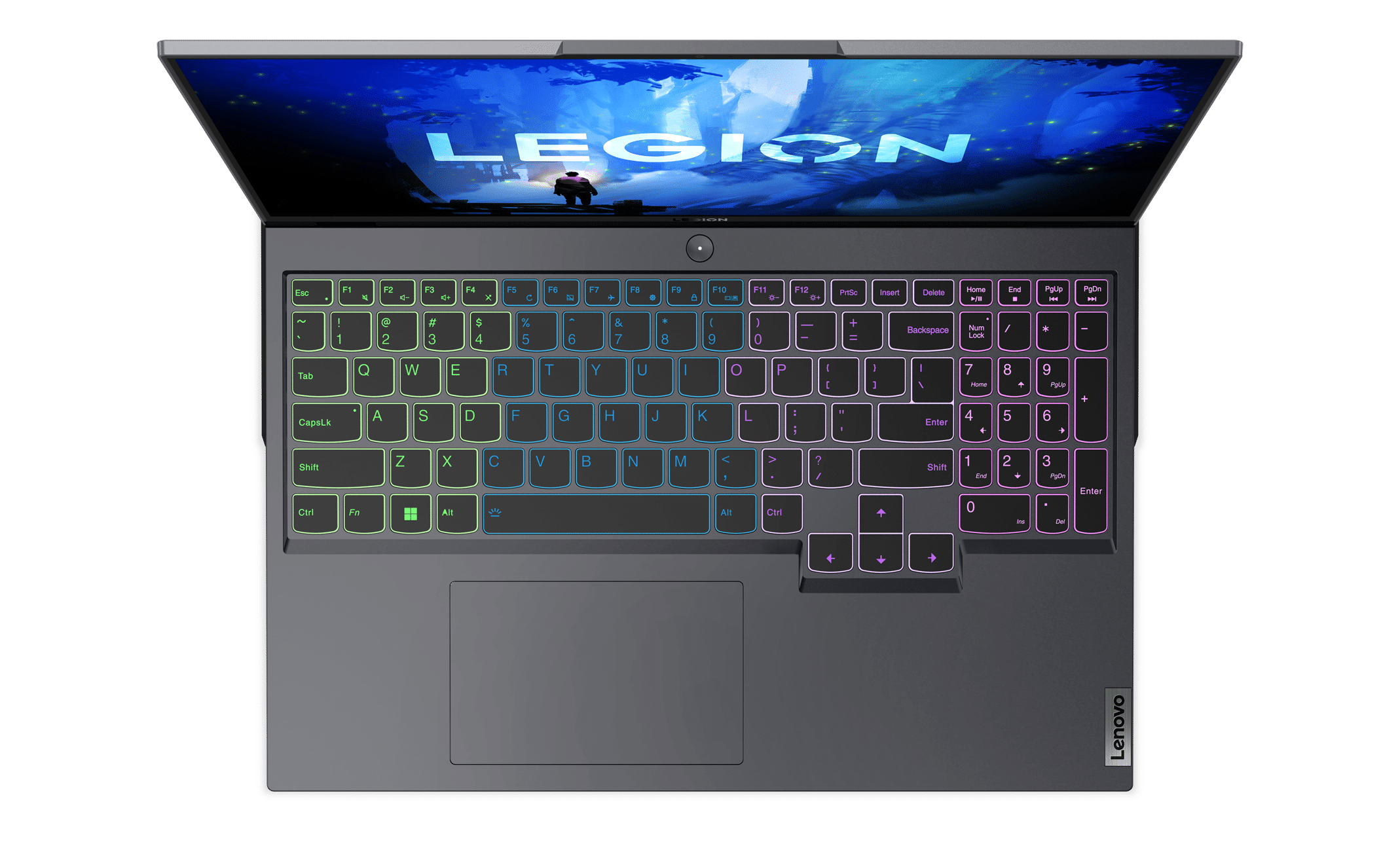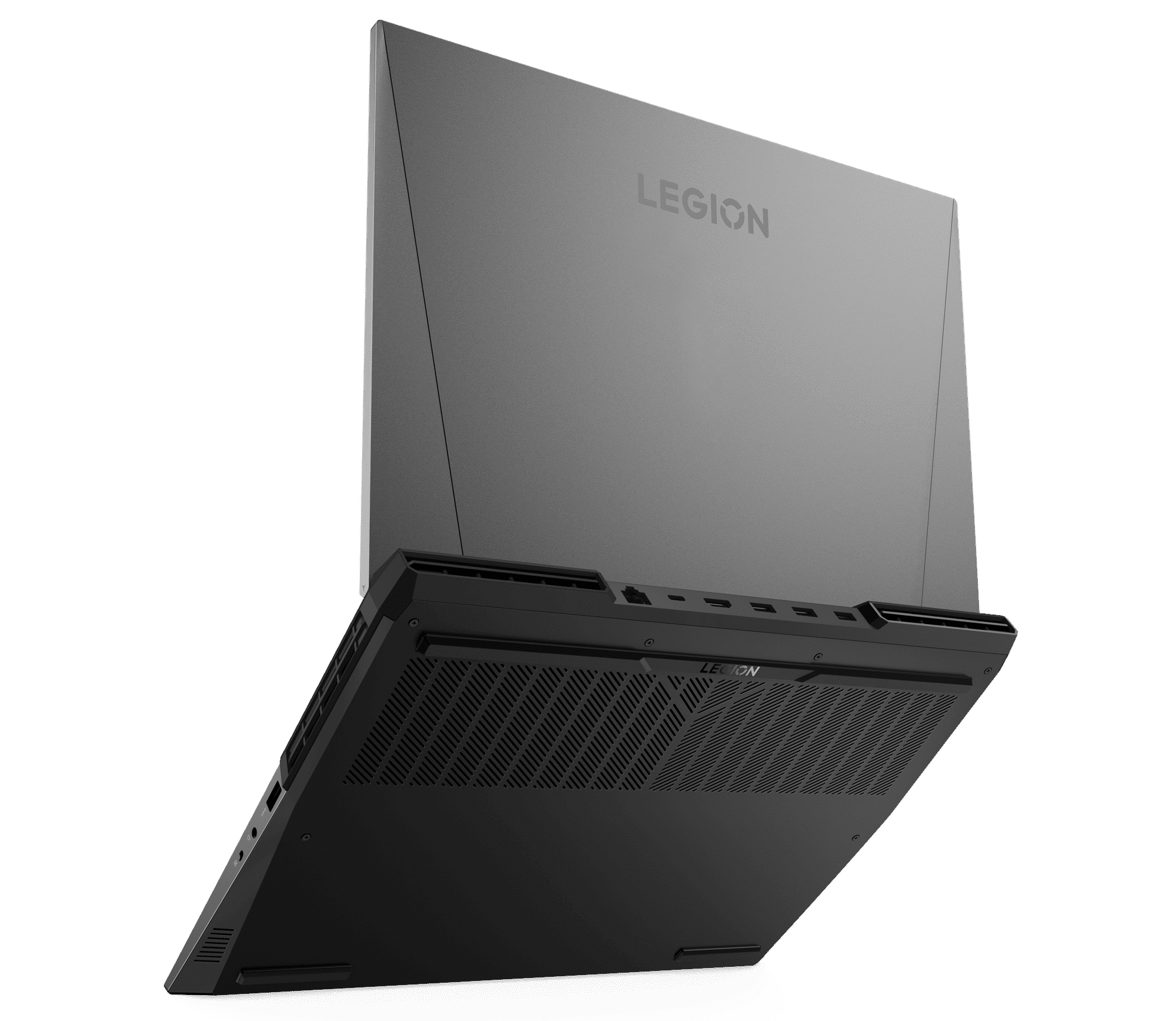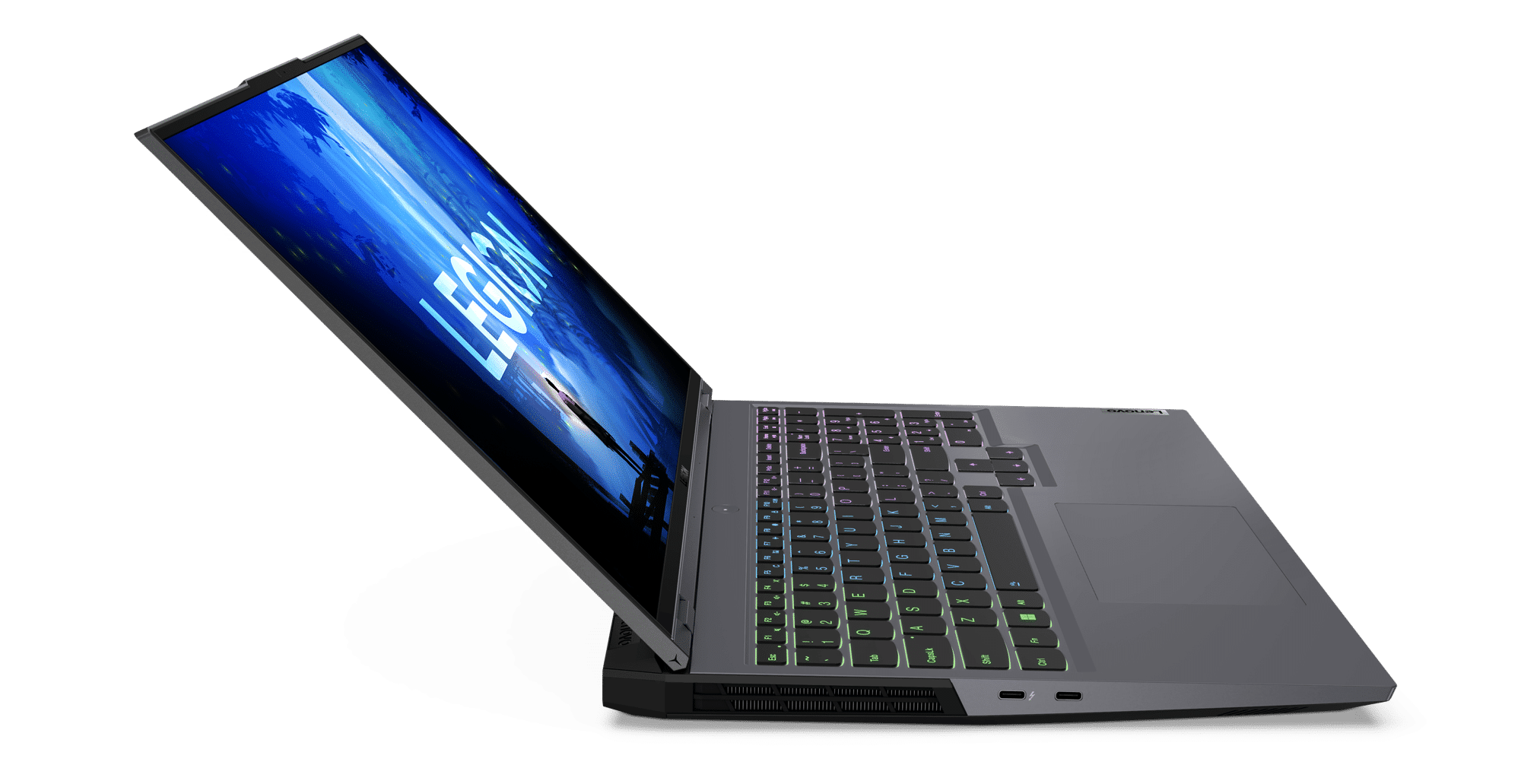I’ve never been a fan of gaming laptops. I spent a lot of the 2010s having the luxury of testing various models from various manufacturers, without the blinders of sunk-cost fallacy, and they always basically fell into one of two categories:
- They weren’t powerful enough to play PC games at high settings, making me wish I was using a more powerful, dedicated desktop machine.
- They were far too large, bulky, and heavy to actually carry around and use as a working laptop, making me wish I was carrying a MacBook Pro instead.
I’ve long been someone who has been very particular about where I do what. I juggle game consoles, a desktop PC kitted out for computer games, and an ageing, but still relatively powerful and compact MacBook Pro for working – writing and video editing – on the go. I never play games on my laptop. I never write articles on my Xbox.
It’s been a long while since I’ve upgraded my actual PC, and the graphics card – a workhorse Geforce GTX 1070 – has been struggling with the latest blockbuster games. I certainly haven’t been getting the best out of it for a while, especially since I upgraded my monitor.
However, in the time I’ve been pondering over whether to shell out for an upgrade, the prices of new graphics cards have shot through the roof, due to a slew of circumstances. COVID. Crypto. That Suez Canal thing. To add to this issue, my CPU and motherboard are also due for an update, and my 10-year-old MacBook Pro probably is too. The idea of getting a gaming laptop to consolidate those needs (and costs) isn’t the worst idea in the world.
It’s been a couple of years since I’ve had a chance to go deep on a gaming laptop, but as chance would have it, Lenovo recently released a new range of Legion laptops designed for both high-performance gaming and work, and the company offered to loan me a Legion 5i Pro to take for a spin.
The 5i Pro is the more affordable model that I would have considered given my circumstances – the more powerful sibling, the 7i, is about a grand or so more expensive. So I was keen to see whether contemporary gaming laptops – or at least, the Legion range – had now evolved far enough to cater to my needs. This was my hypothetical purchase.

At the time of writing, the 5i Pro is going for a pretty reasonable AU $2,300 on Lenovo’s official store, down from an RRP of AU $3,349.
After two months of regular use – at home, on the train, at various pubs and cafes, and even while camping – I was pleasantly surprised to find that it did capably serve my weirdly multifaceted needs. The Legion 5i Pro is a great all-rounder. I still had a few quibbles, mostly in regard to nitpicks in design. But the idea of relying solely on a machine like the 5i Pro for both work and play is now a far more attractive option in my mind.
Lenovo Legion 5i Pro Review: Build and Design
The svelte, professional build of the Legion 5i Pro (as well as the rest of Lenovo’s Legion range) immediately stands out, (or rather, doesn’t) with its understated gunmetal styling. The company has long been associated with business laptops – the Lenovo Thinkpad especially – and the design of the Legion appears to mostly adopt the hallmarks of the ‘smart’ look. Some angular elements hint at a degree of ‘edginess’ that is typical of gaming laptops (much to my personal distaste) but it certainly doesn’t go as hard in this look as other manufacturers. The keyboard has RGB backlighting, but it’s relatively dim and unassuming.

Your mileage may vary here due to personal taste in aesthetics, of course. But for a laptop I want to use for work as much as I do for video games, it’s a great, balanced look. I never felt like I was making the grand statement of ‘EVERYBODY LOOK AT ME, THE GAMER’ when I pulled it out to do some work on the train in front of nosy teens, which is great – because I used this thing on the train a lot.
I almost always carry a computer in my backpack when I’m travelling around for meetings, or when I’m going away for the weekend. At 2.28kg in weight, the Legion 5i Pro is only marginally heavier than the 2012 Macbook Pro I’m used to lugging around, while being far, far more powerful – though I’m not exactly whipping this laptop out on the train to play Cyberpunk 2077.
The Legion is handy enough that it doesn’t feel like a chore to just pull it out to do 15 minutes of work, and it’s not so cumbersome that spending an hour with it on your lap is fatiguing. I was actually surprised by how comfortable I felt with it all. I might as well have been using a Thinkpad.

The underside of the Legion 5i Pro features hard rubber legs, designed to raise the unit when resting on a table in order to allow airflow for the cooling vents, which also exist on the bottom of the laptop. They can dig into your thighs, affecting the comfort level when the device when using it on your lap – but it also adds a bit of resistance to stop the laptop from sliding off, at least when you’re wearing jeans. Heat was also a non-issue for me when using it for tasks like word processing or web browsing, even when streaming video – I never experienced anything excessive that made using it uncomfortable.
The keyboard on the Legion was similarly comfortable. It has a low actuation (1.5mm), and was comfortable to type on for long periods at weird angles. The keyboard also features a Numpad – a personal must-have, and to be honest, its inclusion surprised me. If you do a lot of data entry, it’s a godsend. However, this comes at the cost of a notable gripe – the off-centre trackpad.
Sitting slightly to the left-of-centre to cater for the full Numpad and arrow keys, the position of the trackpad was something I never quite got used to. To be clear, I am someone who completely disables the ‘tap’ functionality on laptop trackpads, preferring the certainty of hard left and right clicks. But because the trackpad is off-centre, I would find myself hitting a lot of accidental right clicks, and needed to shift my arms in an uncomfortable position to make sure I could nail that left click.
The only other significant issue I had with the design of the unit is one that most other gaming laptops struggle with – a large, cumbersome power brick of a charger that is the bane of your existence when travelling. Coming from a MacBook and its compact charger, it’s a big sticking point. Often, I would leave the brick at home if I knew I was only going to use it for about a few hours while out and about – the battery life is adequate for this kind of use.
These are relatively minor gripes in the face of an otherwise positive experience using the Lenovo Legion 5i Pro as a portable workstation.

Lenovo Legion 5i Pro Review: Gaming performance
Testing the Legion as a work machine was useful and eye-opening, but of course, the chance to really put this machine through its paces as a video game machine with demanding graphics on was the thing I was really curious about.
The Legion 5i Pro I tested had a GeForce RTX 3060 Laptop GPU 6GB installed in it, and to be honest, I was not expecting it to perform as well as it did. Previously, my brain associated Nvidia XX60 series GPUs, as well as Laptop GPUs, as budget options with less power. But Laptop GPUs, and GPUs in general – have obviously made huge strides in the last couple of years.
The game I spent the most time testing was Cyberpunk 2077, for obvious reasons – the game runs on a very taxing game engine, and was infamous at launch for only being able to run smoothly on the highest of high-end PC setups. Despite being a couple of years old now, its dense environments, coupled with real-time ray-tracing (which simulates light in a more realistic fashion) and other post-processing effects make it a very rigorous test to challenge any modern setup. (Back in the day, I used Metro 2033 as a benchmark, now it’s Cyberpunk – what is it about proprietary European game engines that makes them so hard to run?)

Anyway, the verdict? With an external mouse plugged in, and using the Legion 5i’s lovely, built-in 2560 x 1600 screen – a 16:10 aspect screen that adds a little extra horizontal length compared to typical 16:9 screens – it was a great experience.
When running at an uncapped framerate, I largely hit an average of around 40 frames per second (fps) at high graphical setting presets. The Legion 5i Pro features Nvidia G-Sync to match the screen’s refresh rate to the action on screen, and it’s also got a matte finish, so playing Cyberpunk in a few different scenarios – even outdoors in the shade, worked really well.
This may not please everyone, mind you – there are plenty of performance-minded people out there who would prefer that everything run at a smooth 60fps, sometimes at the cost of resolution. That’s not me – I prefer sharper resolutions, and I am 100% fine with a steady 30fps, especially in single-player games. So for me, the Legion 5i really manages to reach the sweet spot.
I should also mention again that the 5i Pro is not the top-end model of the Legion series. You have the option to fork out a bit more cash for an RTX 3070 in the 5i Pro, or make the leap to the next model up – the Legion 7i – which can come equipped with the far more powerful Geforce RTX 3080 8GB but at the cost of a significant price bump – almost AUD $2,000 more at the time of writing, with current online discounts in consideration.
Things weren’t as impressive when I tried hooking up the Lenovo Legion 5i Pro to a 4K monitor to see how things panned out there – the 5i struggled with this extra resolution bump, with Cyberpunk 2077’s frame rate dropping to an average of 20fps, sometimes lower. This machine isn’t a hassle-free way to play the latest blockbuster games at the highest possible standard – you’ll have to invest far more money for that luxury – but that’s an expected and reasonable outcome, and the performance is excellent for the price point.

However, what’s also to be expected is the incredible amount of noise the fans generate when playing something as demanding as Cyberpunk 2077. This is another inherent compromise you’ll need to consider when relying on a gaming laptop – you’ll absolutely need to play with a set of headphones, preferably with active noise cancelling to cut out the droning frequency. The Legion series has options to reduce the amount of fan noise the unit makes, but this comes at the cost of performance.
The key thing to take away is that the Lenovo 5i Pro can drive something as demanding as Cyberpunk 2077 in a handsome fashion with its in-built hardware, which is impressive. Everything less demanding than that – which is virtually everything else I can think of at the time of writing – will work just as well, if not much better. I used the 5i to play several games for review and leisure purposes, including adventure games, strategy games, and other first-person shooters, and it held up fantastically, in many instances maintaining a high level of fidelity and a 60fps performance.
Marvel’s Spider-Man worked a treat, as did God of War. I played about 30 minutes of a dozen different games on Xbox Game Pass (as you do) and nothing stood out as being suboptimal. At the request of the Lenovo representative, I also played the winemaking simulator Hundred Days, which, of course, ran exceptionally well. For 95% of the games I typically play, the Legion 5i Pro handled itself very well.
Lenovo Legion 5i Pro Review: Overall Impressions
The thing to take away from this is you can’t simply judge a gaming laptop’s performance by pushing it with the most taxing game you can imagine, because most of the time, you won’t be playing games like that – not every game pushes those boundaries.
The functionality of the Legion i5 Pro as a convenient, stylish, and comfortable work laptop, as well as its capabilities as a more than adequately powerful gaming machine, make it a very strong option to consolidate several of your lifestyle needs into an enticing all-rounder machine.
Four Stars: ★★★★
Lenovo Legion 5i Pro Gaming Laptop (16”, Gen 7)
Release Year: 2022
Price: From AU $2,049
A Lenovo Legion 5i Pro was loaned to GamesHub on a temporary basis for the purposes of this review. GamesHub has affiliate partnerships. These do not influence editorial content. GamesHub may earn a small percentage of commission for products purchased via affiliate links.





